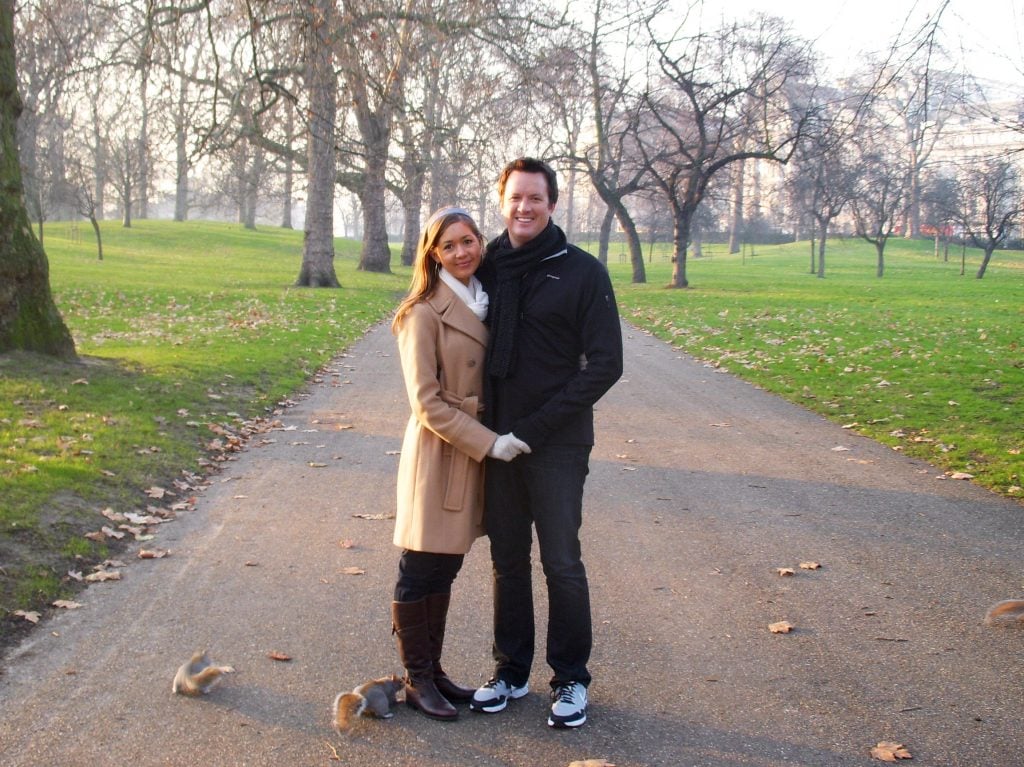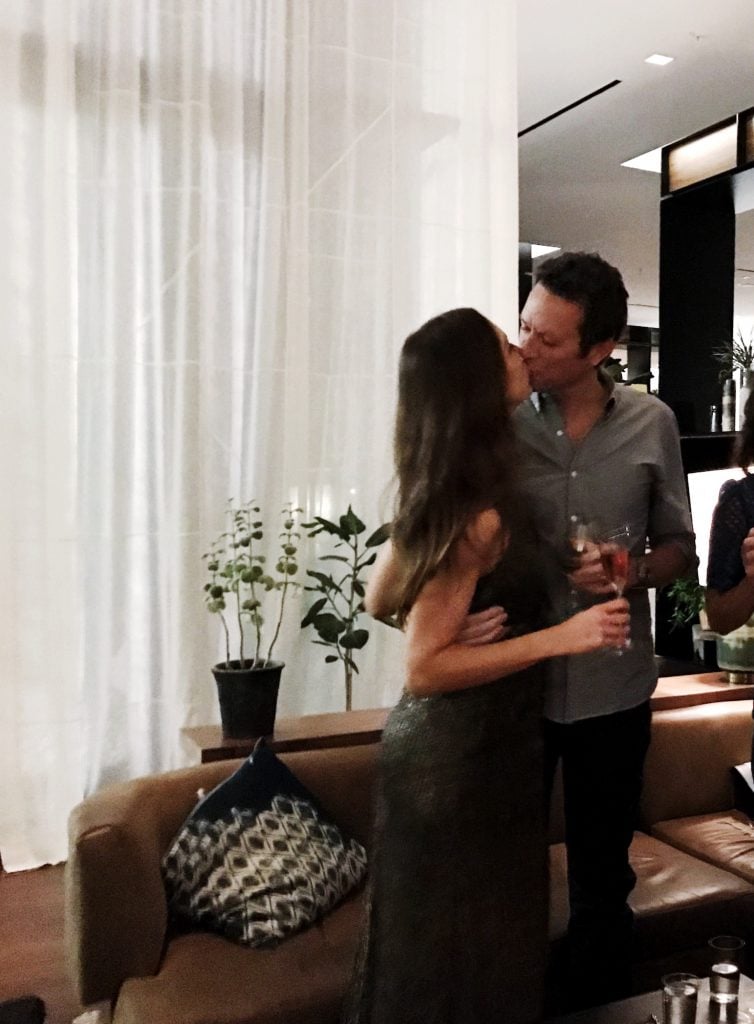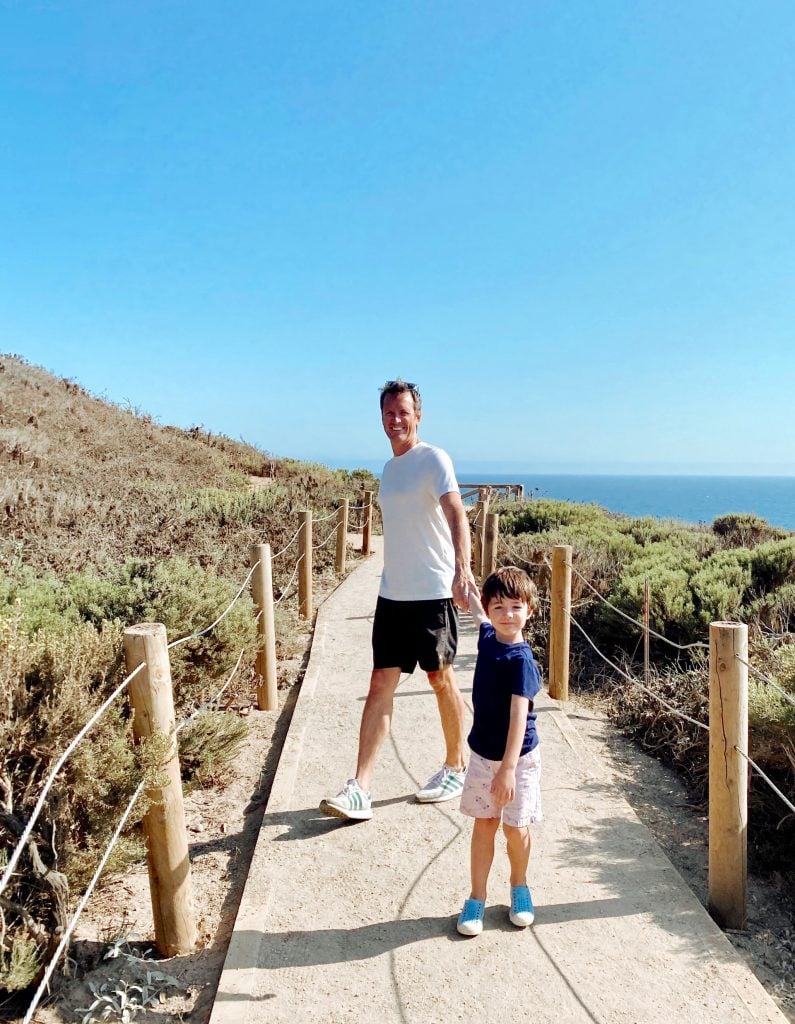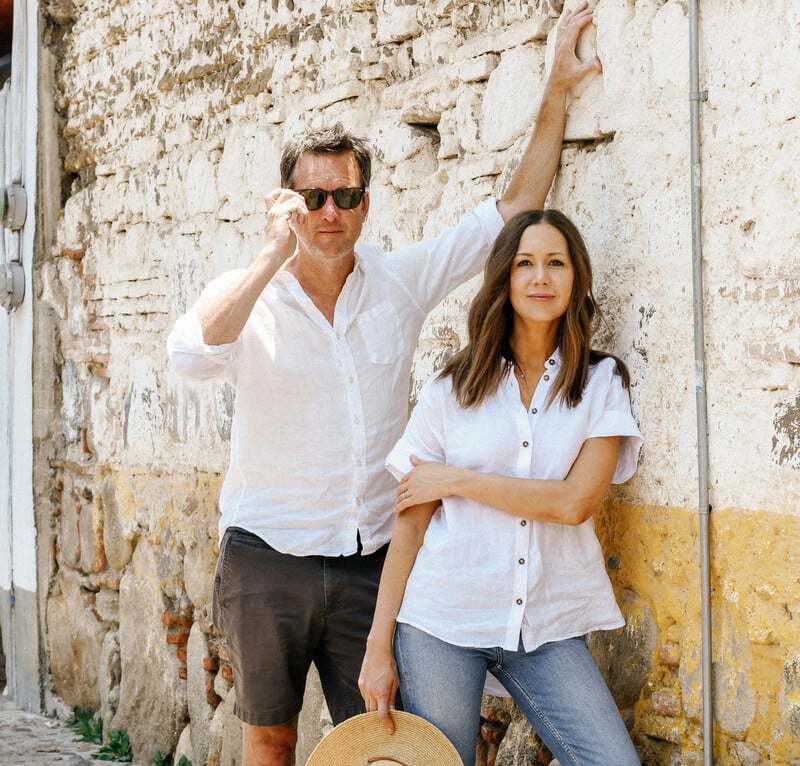I married Adam when I was 25 years old. He was my first serious boyfriend, and considering our decade-plus age difference and the fact that we worked together, it may not have seemed like the wisest decision I’d ever made. But I’d never been so sure of anything in my life—even if someone had tried, there would have been a zero percent chance of talking me out of it.
This week we’re celebrating our fourteenth wedding anniversary. It sounds absolutely crazy to say it. We’ve been parents together for a decade, and I can’t believe that we’ll soon have a middle schooler in the house. I remember hearing that after being married for a few years, things would inevitably fizzle—passion would take a backseat when we had kids, one of us would get the seven-year itch. I kept waiting for it to happen, but somehow our relationship just kept getting better. I don’t claim to know our “secret,” but I do think it helps that we both believe we struck gold when we found each other.
So in honor of our anniversary, I thought I’d share a few things I’ve learned about long-term love after fourteen years with my soulmate. Everyone’s relationship is different, but these are lessons that have helped us navigate the challenging moments. They’ve inspired a relationship that’s built on trust, mutual respect, passion, unfading attraction, and a shared excitement that ensures our life together is never boring. Take what you want, leave the rest.


Let it go
I’ve seen relationships fall apart over small annoyances that build up over time, slowly growing into something bigger. I decided early on that I wouldn’t let it happen to us—I chose to accept the things that probably aren’t going to change, and be very selective about what I made into an issue. When I start to feel irritated, I try to ask myself “Could I laugh about this?” (BTW, this is a great strategy to employ with your kid, your co-worker, your mom, your sister… )


Turn toward “bids for connection”
Let’s talk about bids for connection, a concept I learned from Dr. John Gottman’s research on healthy marriages. Essentially, a “bid” is an attempt from one partner for attention, affirmation, or connection. It could be a wink, a touch, a request for help, sharing something vulnerable, or a suggestion to do something together. When you recognize that your partner has made a bid for connection, you have a choice: you can consciously turn toward that bid by acknowledging it, or you can turn away from that bid by ignoring or rejecting it.
Research shows that this “turning toward” or “turning away” is extremely important for the health of a relationship. Missing a few bids for connection is normal, but when it becomes the norm, it can lead to a relationship’s demise. It’s about paying attention and prioritizing. (Highly recommend reading more about this in the Gottman’s book.)


See your partner with fresh eyes
A few years ago, I went to a dinner where I was seated next to sex therapist Esther Perel. One of my biggest takeaways from our conversation was that we’re most drawn to our partners when there’s a distinct separation between us. Even in long-term relationships, we’re not one and the same—we never really “belong” to one another.
One example of this is when we consciously choose to see our partner through the eyes of another. For instance, if Adam and I are at a crowded event, I might watch him from across the room deep in conversation, and I try to view him as though he’s a stranger. Creepy? Maybe (lol), but just TRUST ME, it’s sexy. There’s something about seeing your person with fresh eyes that brings a wave of those feelings from when you first met. It always reminds me why I fell in love with him in the first place.


Let them know you want them
Now that you’ve remembered how hot your partner is, let them know it. Tell them, touch them, flirt with them. Let them know there’s no one else you’d rather spend time with. Feeling desired somehow makes you more desirable, and it sets a whole new energy in motion.


Cool off, then say I’m sorry
Arguing is inevitable, but the way we fight is the real kicker. Adam and I can both be stubborn, but over the years we’ve gotten a lot better at being the first to say I’m sorry. We’ve learned that it’s helpful for us to take a break and cool off so that we can honestly ask ourselves what role each of us played in the disagreement. Owning it and apologizing goes a long way. Usually, we both realize that whatever we were fighting about wasn’t that important anyway. When we release the need to be right, we can move forward together.


Always have something to grow toward together
Shared goals and dreams for the future have always been our favorite thing to talk about. Whether we’re starting a workout routine, landscaping the backyard, launching a business, or saving for a bucket list vacation, a shared challenge brings so much vitality to our relationship. Some of our best conversations happen when we pour a glass of wine and share our dreams for the future. Even if we don’t actually do all of them, it reminds us that we’re on each others’ team, building something together.






